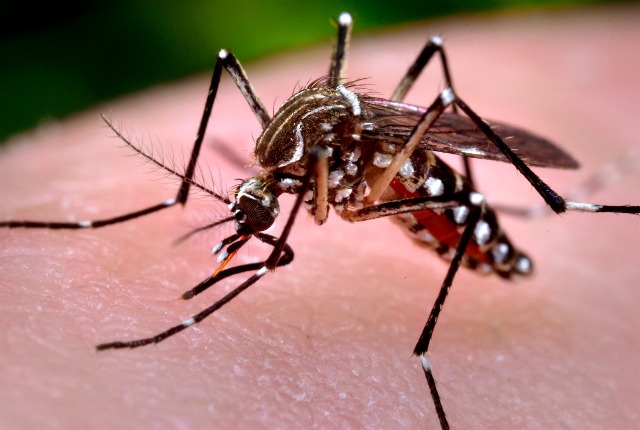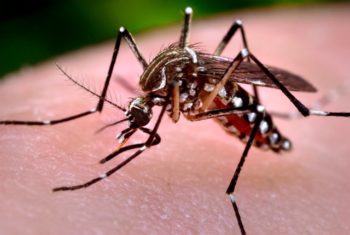 Aedes aegypti
Aedes aegypti
DENGUE FEVER: The Scourge Among Us
IN most of the areas in the Philippines, rainy season starts in the month of June, this means Dengue Fever cases will be on the rise again. Dengue fever is a virus infection caused by mosquito-borne dengue virus. There are 4 serotypes of dengue viruses. Infection with one dengue serotype convenes lifetime immunity to that serotype, but a person can eventually be infected by all 4 serotypes. Dengue is transmitted by female mosquitoes of the genus Aedes, and the two most important vectors of dengue are Aedes aegypti and Aedes albopictus.The disease is widespread in tropical countries influenced by rainfall, temperature and unplanned rapid urbanization. But over the past decade the disease has spread to engulf over ½ of the world’s population. There are about 3 billion patients that live in 112 countries infected with dengue. In the Philippines, a total of 51,597 dengue cases were reported from January 1 to July 14, 2012. This is 16.43% higher compared with the same time period in 2011, which numbered 44,315.
Patients who have dengue usually have non-specific febrile syndromes thus many are not diagnosed right away. A high degree of suspicion is very important. Signs and symptoms that may point to Dengue Fever include headache, pain behind the eyes, muscle pains, knee or shoulder pains, nausea, vomiting, weakness and at times, patients will have signs of bleeding from the gums, nose, urine, and increased menstrual flow or menorrhagia for menstruating females. Complete blood count is important in the diagnosis of dengue infection. The characteristic laboratory findings in dengue fever are a low platelet count with a low white blood count. Dengue Tests (NS1 and antibodies to Dengue) are now available in many laboratories which help confirm and support the diagnosis.
Dengue fever is usually a self-limited illness. The only treatment for dengue is bed rest and adequate hydration by drinking plenty of clear fluids. For some patients who are unable to tolerate oral fluids, they can be hydrated through intravenous fluid. Once patient develop persistent vomiting and severe abdominal pain, they should immediately seek medical help. Mild Dengue Fever which is present in most cases has a good outcome but once the patient develops Severe Dengue Fever the chances of the patient dying is high.
A vaccine to protect against dengue is set to become available within the next 2 years with more in the pipeline. The French pharmaceutical company announced on Nov. 3, 2014 that a vaccine it has developed performed effectively during the last phase of clinical trials and now awaits regulatory approval. A Japanese drug company likewise has a dengue vaccine in the final stages of development. Clinical trials are underway as well for a vaccine being developed by the National Institute of Allergy and Infectious Diseases of the United States, and Singapore University hopes to begin clinical trials for a Dengue vaccine in 2016.
Up until today, there are no specific drugs for its treatment. Aedes mosquitos lay their eggs in damp habitations. To deny them of any chance to breed, we should remove all sources of breeding places where stagnant water may accumulate. Potential breeding grounds are flower vases, pails, discarded receptacles, concrete drains, aircon trays, tree holes and even on the fallen leaves. We can prevent dengue through cleaning up our surroundings at least once a week. Schoolchildren can be protected from day bites by using topical insect repellents or may wear long-sleeved shirts. We should increase our awareness on how to control the transmission of dengue and keep your environment clean and safe. As the old adage says…”An ounce of prevention is better than a pound of cure”.
Michael T. Manalaysay, MD
Bai Johanna Zainal, MD
Southern Philippines Medical Center



No Comments